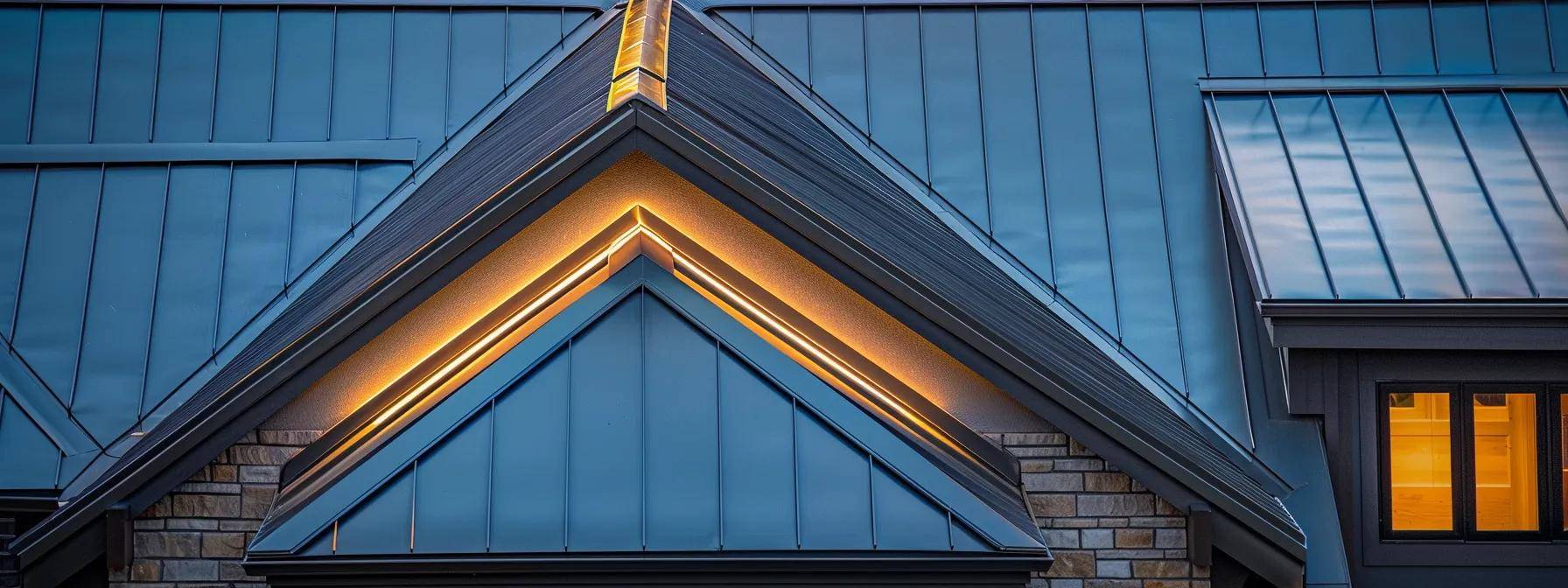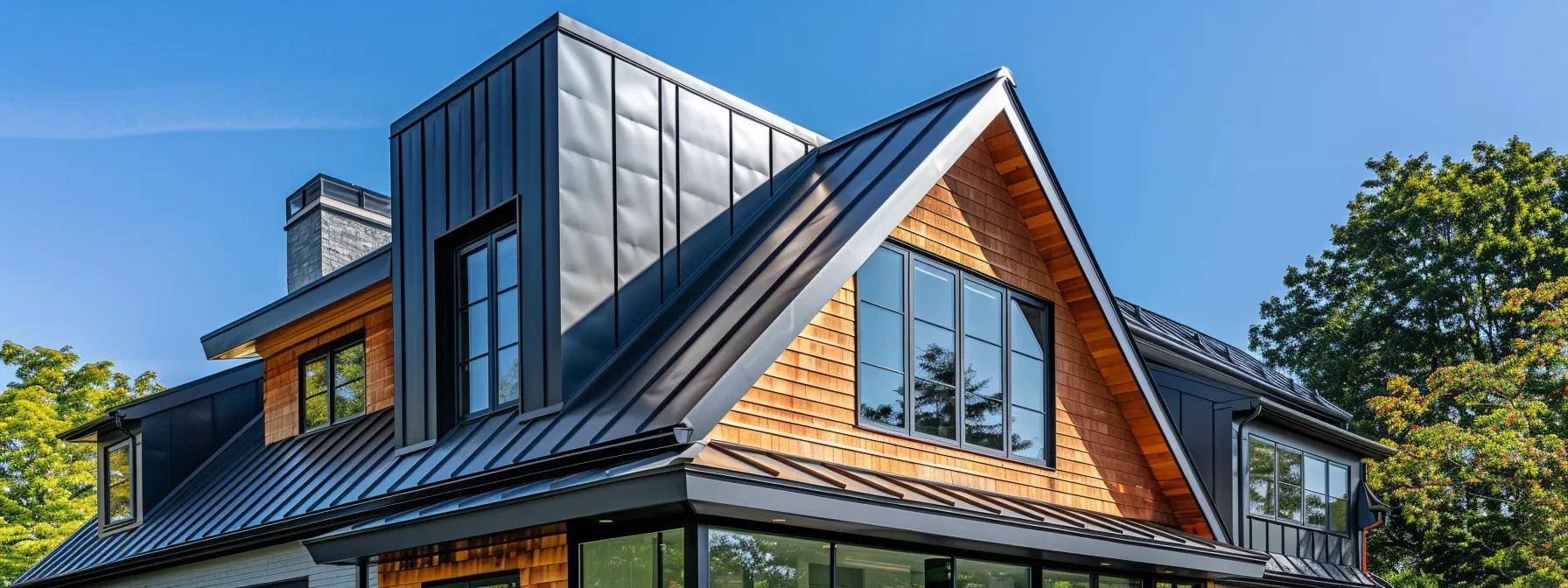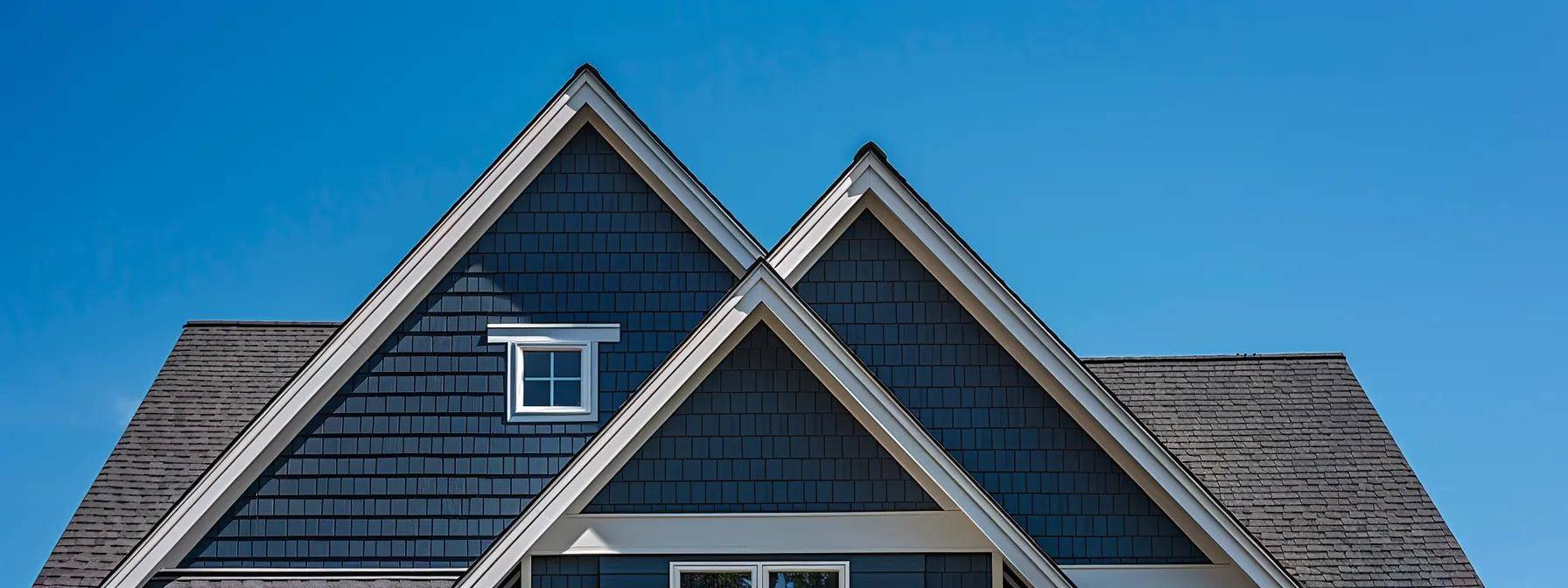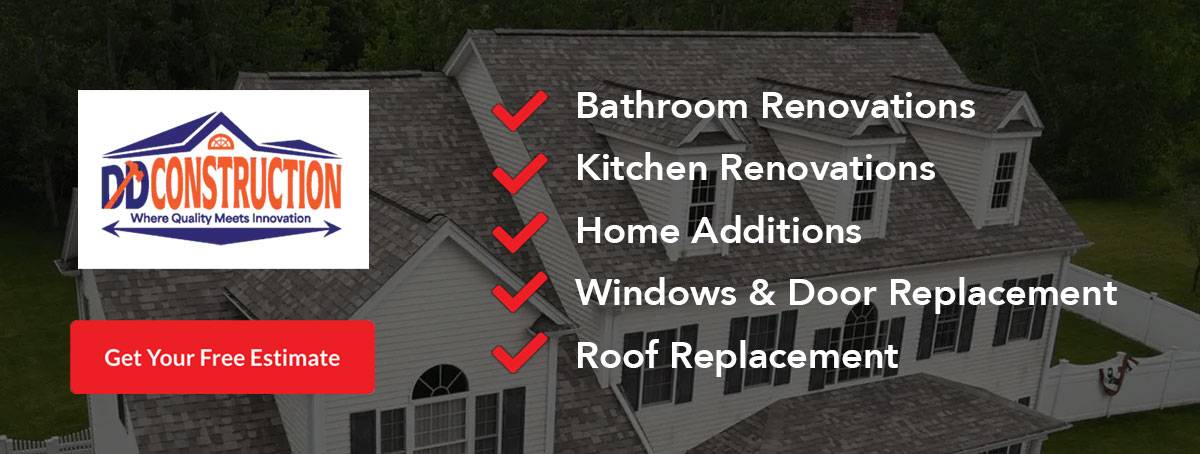Metal vs. Asphalt Shingles: What Roof Contractors in Massachusetts Suggest for Your Home
In the realm of home improvements, choosing the right roofing material is one of the most critical decisions homeowners face, especially in areas served by ddconstructionma. Roofs protect against Massachusetts’ unpredictable weather—from harsh winter snow and ice to hot, humid summer days. At DD Construction, our commitment to high-quality workmanship and durable materials ensures that every roofing project not only withstands the elements but also enhances the home’s aesthetics and energy efficiency under the ddconstructionma standard. This article examines the key differences between metal roofing and asphalt shingles, covering materials, durability, aesthetics, installation techniques, costs, energy efficiency, environmental impact, and more. With many Massachusetts residents seeking long-lasting protection and attractive design, understanding these options is essential.
Throughout this article, we address questions about the materials in each roofing system, their durability, installation challenges, and cost and energy considerations. Our discussion is data-driven and informed by expert opinions from seasoned roofers in Massachusetts. We also include tables and lists summarizing comparisons and key decision factors, ensuring you have concise reference points for statistics, installation steps, and financial considerations. This guide not only assists in selecting and installing roofing material but also highlights maintenance practices that prolong roof life and maximize energy efficiency. Understanding the merits and drawbacks of metal roofing versus traditional asphalt shingles is crucial in today’s home improvement landscape.
What Are the Key Differences Between Metal Roofing and Asphalt Shingles?
The two roofing systems differ in material composition, durability, manufacturing methods, and visual appeal. Metal roofing is made from materials such as steel, aluminum, copper, or zinc. Its modern appearance and light-reflecting surface help reduce cooling loads. In contrast, asphalt shingles consist of a fiberglass or organic base coated with asphalt and mineral granules, offering a classic look that has been popular for decades.
What Materials Are Used in Metal Roofing and Asphalt Shingles?
Metal roofing uses high-grade metals—typically galvanized steel or aluminum—with protective coatings applied by painting or other treatments to prevent corrosion and UV degradation. In Massachusetts, where severe winter conditions prevail, the strength and versatility of metal roofs offer a clear advantage.
Asphalt shingles are manufactured from a fibrous base that is layered with asphalt and topped with ceramic granules. While they are inexpensive and available in many colors and styles, their petroleum-based composition can increase their environmental footprint. Over time, extreme temperature variations may cause greater deterioration in asphalt shingles.
How Do Metal and Asphalt Shingles Differ in Durability and Lifespan?
Metal roofs are celebrated for their durability and can last 50 to 100 years. They resist damage from debris, hail, high winds, mold, mildew, and rot, while their reflective properties improve energy efficiency. Extended warranties often accompany quality metal roofs.
Conversely, asphalt shingles typically last between 15 to 30 years. They are more prone to cracking, curling, and granule loss, particularly under harsh weather conditions. Frequent repairs and replacements are common, which may lead to higher long-term ownership costs.
What Are the Aesthetic Options for Metal vs. Asphalt Roofing?
Metal roofing offers a sleek, modern look with a broad range of finishes and textures, including options that mimic slate or wood shakes. Its reflective surface enhances the brightness of a home’s exterior, and its recyclability adds an environmental benefit.
Asphalt shingles, with their classic appeal, come in numerous colors and textures that suit various architectural styles—from colonial to contemporary. However, they can fade over time and may lack the crisp, modern lines provided by metal roofing.
How Does Installation Differ Between Metal and Asphalt Shingles?
Installing metal roofing is more complex because of the heavier panels and the need for specialized fasteners and sealing techniques. Precise alignment, overlapping, and proper insulation are critical to avoid wind uplift and water penetration. This complexity can lead to longer project timelines and higher labor costs.
In contrast, asphalt shingles are lighter and easier to cut and nail, allowing for faster installation with lower labor expenses. However, proper alignment and secure fastening remain important to prevent issues such as curling and wind damage.
How Much Do Metal and Asphalt Shingle Roofs Cost in Massachusetts?

Cost is a major factor for homeowners. While metal roofing generally has a higher upfront price per square foot than asphalt shingles, its durability, lower maintenance expenses, and energy savings can lead to lower long-term costs.
What Factors Influence the Cost of Metal Roofing in Massachusetts?
Key cost factors for metal roofing include: – The type of metal (e.g., copper is premium; galvanized steel is more affordable). – Special coatings or finishes that add protection and aesthetic appeal. – Roof design complexity, including multiple slopes or custom-fabricated panels. – Labor costs related to specialized installation techniques. – Transportation, market fluctuations, and additional warranties or post-installation services.
What Factors Affect Asphalt Shingle Roofing Costs Locally?
For asphalt shingles, costs are influenced by: – Shingle quality; premium architectural shingles cost more than standard three-tab options. – Local market demand and seasonal fluctuations. – Roof design complexity and the need for extra underlayment. – Disposal fees for old materials and permit or structural repair costs. – Regional competition among roofing contractors.
How Do Maintenance and Repair Costs Compare for Metal and Asphalt Roofs?
Metal roofs, due to their durability, tend to incur fewer and less frequent maintenance costs. Their resistance to cracking, granule loss, and water infiltration translates to fewer emergency repairs.
Asphalt shingles, on the other hand, often require more regular inspections, patch repairs, and eventual replacement, leading to higher long-term expenses.
Are There Financing Options for Roofing Projects in Massachusetts?
Both roofing systems can be financed. Metal roofing projects, with higher upfront costs, may be supported through low-interest loans, home improvement financing, or contractor-specific plans. Asphalt shingle projects are also eligible for financing, especially when unexpected repairs or full roof replacements are needed. Contractors often have partnerships with financing companies or offer in-house plans to ease project initiation.
What Are the Benefits and Drawbacks of Metal Roofing for Massachusetts Homes?
Metal roofing offers several benefits vital for Massachusetts conditions, including impressive durability, energy efficiency, and superior protection against extreme weather. Its resistance to rust, corrosion, and fire provides homeowners long-term peace of mind, and its extended lifespan often results in lower lifetime costs.
Why Do Roof Contractors Recommend Metal Roofing for Massachusetts Climate?
Local roofing experts favor metal roofing because it excels in severe weather conditions such as heavy snowfall, ice, and high winds. Metal roofs effectively shed snow and drain water, reducing the risk of ice dams and subsequent water damage. Their performance in high wind conditions—thanks to interlocking designs and robust fasteners—further supports their use despite higher upfront costs. Additionally, metal roofs undergo fewer leaks and are less prone to mold, making them a reliable, long-term solution.
What Are the Energy Efficiency Advantages of Metal Roofing?
Metal roofs are highly energy efficient due to their reflective coatings, which bounce back up to 70% of sunlight. This reflection minimizes heat absorption, keeping interiors cooler and reducing air conditioning demands. Combined with proper ventilation and insulation, these roofs contribute to significant energy savings and lower carbon footprints.
What Are Common Disadvantages or Challenges of Metal Roofing?
The primary drawback of metal roofing is its higher initial cost for materials and installation. The specialized techniques required for proper installation may extend project timelines and increase labor expenses. Additionally, metal roofs can be noisier during heavy rain or hail, although this can often be mitigated with suitable insulation and underlayment.
What Types of Metal Roofing Are Best Suited for Massachusetts?
Common metal roofing options include: – Standing Seam Roofs: Feature concealed fasteners and a modern look, ideal for high wind resistance. – Corrugated Metal Panels: Offer versatility and cost-effectiveness while mimicking traditional designs. – Aluminum Roofs: Particularly effective in coastal areas due to their resistance to salt and humidity.
Consulting with roofing experts helps homeowners choose the best metal roofing type based on design preferences, budget, and local environmental demands.
What Are the Benefits and Drawbacks of Asphalt Shingles for Massachusetts Homes?

Asphalt shingles remain popular due to their affordability, traditional look, and ease of installation. They suit a wide range of architectural styles and are readily available across Massachusetts.
Why Are Asphalt Shingles Popular Among Massachusetts Homeowners?
Their low initial cost and simple installation process make asphalt shingles an attractive option for many homeowners. They offer a traditional and familiar aesthetic, fit well with existing home designs, and can often be overlaid on existing roofs to reduce installation time and mess.
How Do Asphalt Shingles Perform in Massachusetts Weather Conditions?
While asphalt shingles perform adequately against moderate weather, their lifespan is typically shorter in areas with severe winters. Constant freeze-thaw cycles can lead to curling, cracking, and granule loss. Enhanced formulations with polymer-modified bitumen can extend their lifespan, but rigorous maintenance is generally needed to manage deterioration over time.
What Are the Common Types of Asphalt Shingles Used Locally?
There are two main types: – Three-Tab Shingles: Traditional, single-layer design that is cost-effective but offers less durability. – Architectural Shingles: Multi-layered designs that mimic higher-end materials like slate, providing improved durability and better performance in high winds and extreme conditions.
What Are the Limitations or Disadvantages of Asphalt Shingles?
The disadvantages of asphalt shingles include: – A shorter lifespan (15–30 years) compared to metal roofs. – Higher long-term maintenance and repair costs due to degradation from UV exposure and freeze-thaw cycles. – Increased waste production and a larger environmental footprint because of petroleum-based components.
How Do Metal and Asphalt Shingles Compare in Energy Efficiency and Environmental Impact?
Energy efficiency and environmental concerns play an increasingly important role in roofing decisions. The two systems differ in energy performance and ecological footprint across their lifecycles.
How Does Metal Roofing Contribute to Energy Savings?
Metal roofs save energy with their highly reflective surfaces, which reduce indoor heat gain and lower cooling costs. Their long lifespan and reduced need for frequent replacement further decrease energy and material waste. Combined with efficient ventilation and insulation, metal roofing significantly reduces overall energy consumption.
What Is the Environmental Footprint of Asphalt Shingles?
Asphalt shingles have a larger environmental footprint. Their production relies on petroleum-based products, and their shorter lifespan leads to more frequent replacements and greater waste. The energy-intensive manufacturing process and lower thermal reflectivity further contribute to increased energy use and environmental degradation over time.
Which Roofing Material Is More Sustainable for Massachusetts Homes?
Metal roofing is considered more sustainable due to its longer lifespan, recyclability, and energy-saving properties. While asphalt shingles have lower upfront costs, the cumulative impact of resource consumption, waste generation, and energy usage makes metal roofing the environmentally smarter choice over the long term.
How Should Massachusetts Homeowners Choose Between Metal and Asphalt Shingles?

Choosing the right roofing material requires a careful evaluation of individual circumstances, budget, and aesthetic preferences, alongside long-term performance and environmental considerations.
What Factors Should Influence Your Roofing Material Choice?
Key factors include: – Climatic Conditions: Massachusetts’ variable weather demands durability and resistance. – Cost Considerations: Upfront costs versus long-term savings from durability and low maintenance. – Aesthetic Preferences: Modern, sleek looks of metal versus the time-tested appeal of asphalt shingles. – Maintenance Needs: Frequency of repairs and overall upkeep. – Environmental Impact: Energy efficiency and sustainability of the materials.
How Do Local Building Codes and Permits Affect Your Roofing Options?
Local building codes and permit requirements influence roofing material choices. Metal roofs may require additional inspections or certifications due to custom designs and specialized installations. Asphalt shingles generally meet standard codes but may also need specific underlayment or flashing materials in areas with heavy snowfall or high winds. Consulting with experienced roofing contractors ensures compliance and optimal performance.
When Is Metal Roofing the Better Choice?
Metal roofing is ideal when longevity, energy efficiency, and minimal maintenance are priorities. It is best suited for areas with severe weather and for those desiring a modern aesthetic. The benefits of lower long-term operational costs and environmental impact often justify the higher initial investment.
When Are Asphalt Shingles More Suitable?
Asphalt shingles are a viable option for those with budget constraints or who prefer a traditional look. They are suitable for simpler roof designs where ease and speed of installation reduce labor costs. While they may require more frequent maintenance, their lower upfront cost can be appealing for certain homeowners.
What Roofing Services Do Massachusetts Contractors Offer for Metal and Asphalt Shingles?
Massachusetts roofing contractors provide comprehensive services for both metal and asphalt shingle installations, including consultations, detailed estimates, installation, maintenance, and repair. These services are designed to ensure a quality roof that performs well over its lifespan.
What Does the Metal Roofing Installation Process Involve?
The process begins with a detailed inspection of the existing roof and structure, followed by the development of a precise installation plan that includes measurements and material selection. Metal panels are cut, shaped, and carefully aligned. Special attention is paid to overlaps, flashing, and sealants to ensure the roof is watertight and resistant to wind uplift. High-quality fasteners and underlayment systems are used to secure the panels, and all work complies with local building codes and safety regulations. Finishing touches, such as painting or protective coatings, finalize the process to achieve both durability and visual appeal.
How Is Asphalt Shingle Installation Performed in Massachusetts?
Asphalt shingle installation starts with an evaluation of the roof structure, followed by repairs or underlayment upgrades if needed. A moisture barrier is applied to prevent water penetration. Shingles are then laid from the bottom edge upward, with each row overlapping to form a continuous barrier against rain and wind. The shingles are secured with galvanized nails, and careful detailing is provided around vents, chimneys, and skylights using custom flashing. This process is typically faster and less labor-intensive than installing metal roofs.
What Maintenance and Repair Services Are Available for Both Roofing Types?
Regular maintenance for both roofing systems includes inspections, cleaning, and reapplication of protective coatings or sealants. For metal roofs, repairs might involve re-fastening panels or resealing joints. Asphalt shingle repairs include patching or replacing individual shingles and checking flashing and underlayment. Many contractors offer seasonal maintenance packages to proactively address weather-related wear and extend the roof’s life.
How Can Homeowners Get Accurate Roofing Estimates and Consultations?
Homeowners should schedule free consultations with Massachusetts roofing contractors who perform on-site evaluations, review local building codes, and discuss specific needs. These consultations produce detailed written estimates covering materials, labor, and any extra services. Advanced tools, such as 3D modeling and thermographic imaging, may be used for precise measurements. Transparent communication regarding financing options and warranties ensures that homeowners can make informed decisions that balance immediate costs with long-term benefits.
What Are the Most Frequently Asked Questions About Metal vs. Asphalt Shingles in Massachusetts?

The following FAQs address common concerns regarding the performance, cost, and maintenance of metal versus asphalt shingle roofing in Massachusetts:
What Is the Best Type of Roof for Massachusetts Weather?
Massachusetts’ extreme temperatures, heavy snow, and high winds make metal roofing the preferred choice for its durability and energy efficiency. High-quality asphalt shingles can also perform well if installed with appropriate underlayment and flashing, but metal roofs generally provide better long-term protection.
How Long Do Metal and Asphalt Shingle Roofs Last in Massachusetts?
Metal roofs typically last 50 years or more, while asphalt shingles generally need replacement every 15 to 30 years. Longevity is influenced by local climate, installation quality, and maintenance practices, making metal roofs more economical over time.
How Much Does a Metal Roof Cost Compared to Asphalt Shingles?
Metal roofs have a higher initial cost due to premium materials and specialized installation. However, their extended lifespan, lower maintenance, and energy savings can offset these costs. Asphalt shingles are less expensive upfront but may incur higher long-term expenses.
What Are the Maintenance Requirements for Each Roofing Material?
Metal roofs require minimal maintenance—periodic cleaning and inspection are usually sufficient. Asphalt shingles need more frequent maintenance to address curling, granule loss, and other weather-related wear, potentially resulting in higher lifetime costs.
Can I Switch From Asphalt Shingles to Metal Roofing?
Yes, switching is possible. While conversion may involve additional work such as removing old shingles and reinforcing the roof deck, the long-term benefits—increased durability and energy efficiency—often justify the initial investment. It is important to have a professional inspection and consultation to understand required modifications and cost differences.
Tables and Lists
Below is a summary table comparing metal roofing and asphalt shingles in key performance areas:
| Aspect | Metal Roofing | Asphalt Shingles |
|---|---|---|
| Lifespan | 50+ years, sometimes up to 100 years | 15-30 years |
| Durability | High resistance to wind, hail, and corrosion | Moderate resistance; prone to cracking and fading |
| Energy Efficiency | Excellent due to reflective coatings | Lower; absorbs heat leading to higher AC usage |
| Maintenance Expenses | Generally low; fewer repairs required | Higher; regular repairs and replacement needed |
| Environmental Impact | Recyclable and sustainable; lower lifecycle impact | Higher waste production; petroleum-based material |
| Installation Complexity | Requires specialized labor and techniques | Easier and quicker to install |
| Aesthetic Options | Modern, versatile; can mimic slate or wood shakes | Traditional; available in numerous colors and styles |
| Upfront Cost | Higher initial cost | Lower upfront cost |
Additionally, consider these essential features when making a roofing decision: 1. Durability and Lifespan 2. Weather Resistance 3. Energy Efficiency 4. Environmental Impact 5. Maintenance Requirements 6. Aesthetic Appeal 7. Installation Complexity
Below is another table outlining cost influencers:
| Cost Factor | Metal Roofing | Asphalt Shingles |
|---|---|---|
| Material Quality | Premium metals and coatings increase costs | Lower cost materials with varying quality |
| Labor Costs | Higher due to specialized installation | Lower due to simpler processes |
| Roof Complexity | Custom designs add to expense | Standard installations usually less expensive |
| Maintenance Over Time | Lower due to longer lifespan | Higher because of frequent repairs |
| Disposal & Waste Management | More sustainable; recyclable | Generates more waste; higher disposal fees |
| Warranty | Often includes extensive warranties | Typically limited warranty coverage |
| Local Market Variations | Subject to supply chain and material availability | Affected by regional installer rates |
Frequently Asked Questions
Q: What are the primary differences in durability between metal roofs and asphalt shingles in Massachusetts? A: Metal roofs offer superior durability and a lifespan that often exceeds 50 years, performing well even in extreme weather. Asphalt shingles generally last 15 to 30 years and are more susceptible to issues like curling and granule loss.
Q: How do metal roofs help reduce energy costs in the summer? A: Metal roofs feature reflective coatings that bounce back much of the sun’s heat, reducing heat absorption and indoor temperatures. This leads to lower air conditioning needs and energy savings, contributing to a reduced overall carbon footprint.
Q: What installation challenges might homeowners face when choosing metal roofing? A: Metal roofing requires specialized techniques, including precise panel alignment, proper fastening, and effective sealing with flashing and underlayment. These challenges may result in higher upfront installation costs and longer project timelines compared to asphalt shingles.
Q: Are there any environmental benefits to choosing metal roofing over asphalt shingles? A: Yes, metal roofing is more sustainable because it is fully recyclable and lasts significantly longer than asphalt shingles, which reduces waste. Additionally, the enhanced energy efficiency of metal roofs lowers overall energy consumption and greenhouse gas emissions.
Q: Can a homeowner easily switch from an asphalt shingle roof to a metal roof, and what are the potential benefits? A: Switching is feasible, but it requires a professional evaluation to ensure the roof structure can support metal panels. Although the transition may involve additional work such as removing old shingles, the benefits include increased durability, improved energy efficiency, and reduced maintenance costs over time.





